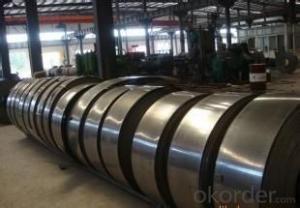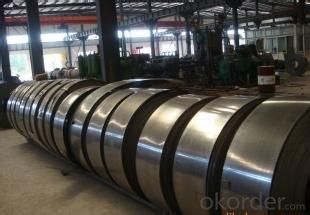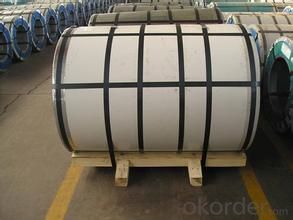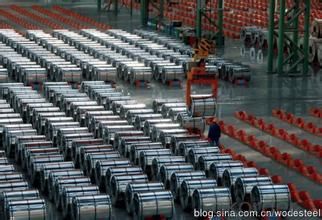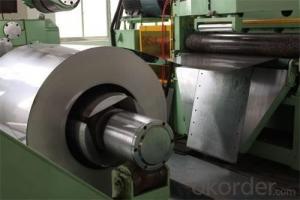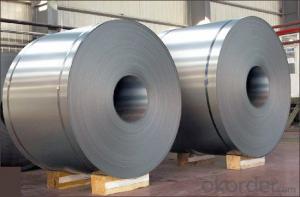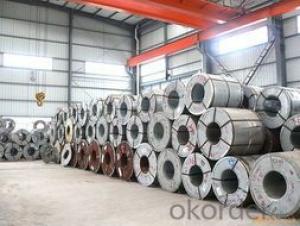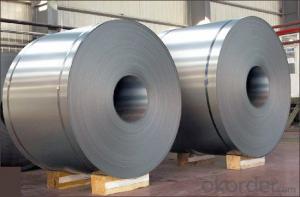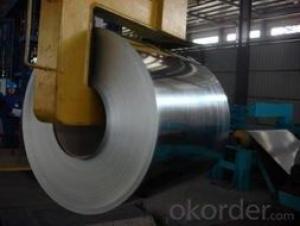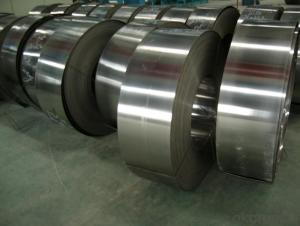Our Cheap Cold Rolled Steel Coil JIS G 3302
- Loading Port:
- China main port
- Payment Terms:
- TT OR LC
- Min Order Qty:
- 50 m.t.
- Supply Capability:
- 10000 m.t./month
OKorder Service Pledge
OKorder Financial Service
You Might Also Like
Chines Best Cold Rolled Steel Coil JIS G 3302
1.Structure of Cold Rolled Steel Description:
The raw material of cold rolled steel coil/sheet is high quality hot rolled product, and after pickling continuous rolling, degreasing, annealing,skin pass,slitting and cut to length line etc. Along with it many kinds of new technology and new process of global cold rolling production have been applied. Therefore the quality of the goods could be guaranteed. The product is widely used in outdoor and interior decoration, furnishing manufacturing, home appliance, automobile etc.
2.Main Features of the Cold Rolled Steel:
• Excellent process capability
• Smooth and flat surface
• Workability, durability
• Excellent heat resistance performance
• High strength
• Good formability
• Good visual effect
3.Cold Rolled Steel Images
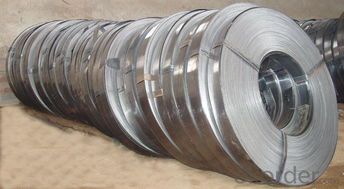
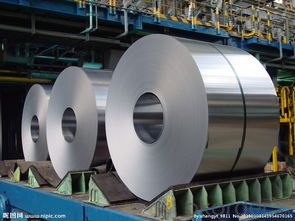
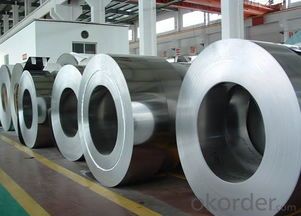
4.Cold Rolled Steel Specification
Standard:AISI,ASTM,DIN,GB,JIS,JIS G3302 ASTM 653M EN10142
Grade: Q195~Q345
Thickness: 0.16mm~2.0mm
Width: 1250mm MAX
Coil weight:3-12 MT
Coil ID:508/610mm
Chemical composition:
C | Si | Mn | Cr | Ni | P | S |
0.150 | 0.476 | 11.231 | 12.50 | 0.900 | 0.039 | 0.010
|
5.FAQ of Cold Rolled Steel
1.How to guarantee the quality of the products?
We have established the international advanced quality management system,every link from raw material to final product we have strict quality test;We resolutely put an end to unqualified products flowing into the market. At the same time, we will provide necessary follow-up service assurance.
2. How long can we receive the product after purchase?
Usually within thirty working days after receiving buyer’s advance payment or LC. We will arrange the factory manufacturing as soon as possible. The cargo readiness usually takes 15-25 days, but the shipment will depend on the vessel situation.
- Q: How are steel coils inspected for thickness?
- Steel coils are inspected for thickness using various methods to ensure their quality and compliance with industry standards. One common method is using a non-contact laser measurement system. In this process, a laser beam is directed towards the surface of the steel coil, and the time it takes for the beam to reflect back is measured. By accurately calculating the time taken, the thickness of the steel coil can be determined. Another method involves using ultrasonic technology. Ultrasonic sensors are used to emit high-frequency sound waves that penetrate the coil. These sound waves bounce back differently depending on the thickness of the steel, allowing the sensors to measure the thickness accurately. Additionally, some manufacturers may opt for an eddy current testing method. This technique involves passing an alternating current through a coil, creating a magnetic field. The thickness of the steel coil affects the impedance of the coil, which can be measured. By analyzing the changes in impedance, the thickness of the steel coil can be evaluated. Furthermore, some companies employ a mechanical method called the caliper method. This method involves using a caliper gauge to physically measure the thickness of the steel coil by applying pressure to the coil and reading the measurement on the caliper. Regardless of the method used, it is crucial for steel coils to be inspected for thickness to ensure they meet the required specifications and provide the desired performance in various applications.
- Q: How are steel coils classified based on their thickness?
- Steel coils are classified based on their thickness using a gauge system, where the higher the gauge number, the thinner the coil.
- Q: i was giving this old knive. the knife part is stainless steel and has a couple rust spots but im not sure that the handle is (i think stainless) but it has this un smooth surface i dont think its rust because its not brown. would rubbing alcohol help clean it?
- stainless steel comes in several different qualities believe it or not. the real good stainless, like marine grade, will probably never rust. but, there are cheaper types of stainless steel with less nickel in them, and they will pit and or rust over time. Alcohol won't work. I would try wd-40 on it. soak a cloth and rub it to polish. if that doesn't work, try wd-40 and a very fine steel wool, like 000 grade, and buff it with the wd-40.
- Q: What is the minimum temperature that steel coils can withstand?
- The minimum temperature that steel coils can withstand depends on the specific grade of steel and its intended application. However, in general, most steel coils can withstand temperatures as low as -40°C (-40°F) without significant damage or structural failure.
- Q: How are steel coils priced?
- Steel coils are typically priced based on several factors including the current market demand and supply, the grade and quality of the steel, production and transportation costs, as well as any additional processing or customization requirements.
- Q: How do steel coil manufacturers handle custom orders?
- Steel coil manufacturers handle custom orders by first understanding the specific requirements and preferences of the customer. They then work closely with the customer to determine the desired specifications, including dimensions, thickness, width, coating, and any other specific requirements. The manufacturer uses their expertise and production capabilities to customize the steel coils accordingly. This may involve adjusting the production process, modifying machinery settings, or using different materials. Effective communication and collaboration between the manufacturer and the customer play a crucial role in ensuring the successful fulfillment of custom orders.
- Q: I just want to know why is cold steel katana a very good sword?? How can you tell if a cold steel katana is good or not
- Save your money and by a wooden boken. Train with a well balanced wooden one. It is how the great Japanese master started their training. Steel swords are good for display. and perhaps if you become relay good and want to feel the heft and practice cutting straw men and bamboo stalks than invest some money in the real deal for a few hundred $$ at the least.
- Q: Can steel coils be custom-made to specific requirements?
- Yes, steel coils can be custom-made to specific requirements.
- Q: How do steel coils contribute to earthquake resistance in structures?
- Steel coils contribute to earthquake resistance in structures by providing strength and flexibility. When used in the construction of buildings, steel coils can absorb and dissipate the energy generated by an earthquake, preventing it from causing significant damage. The high tensile strength of steel allows it to withstand the lateral forces and vibrations during an earthquake, ensuring the structural integrity of the building. Additionally, the ductility of steel allows it to bend and deform without breaking, further enhancing its ability to withstand seismic activity.
- Q: Do you know of any movies that featured the steel drum?
- You okorder /.. If I can find any clips, I'll add them, but I'm sure that many movies in the proper settings (Trinidad, etc.) would have such music and/or show a group or at least a single performer. For example, Cool Running could be a possibility.
Send your message to us
Our Cheap Cold Rolled Steel Coil JIS G 3302
- Loading Port:
- China main port
- Payment Terms:
- TT OR LC
- Min Order Qty:
- 50 m.t.
- Supply Capability:
- 10000 m.t./month
OKorder Service Pledge
OKorder Financial Service
Similar products
Hot products
Hot Searches
Related keywords
